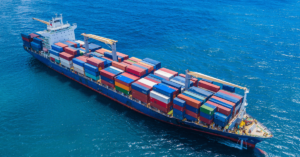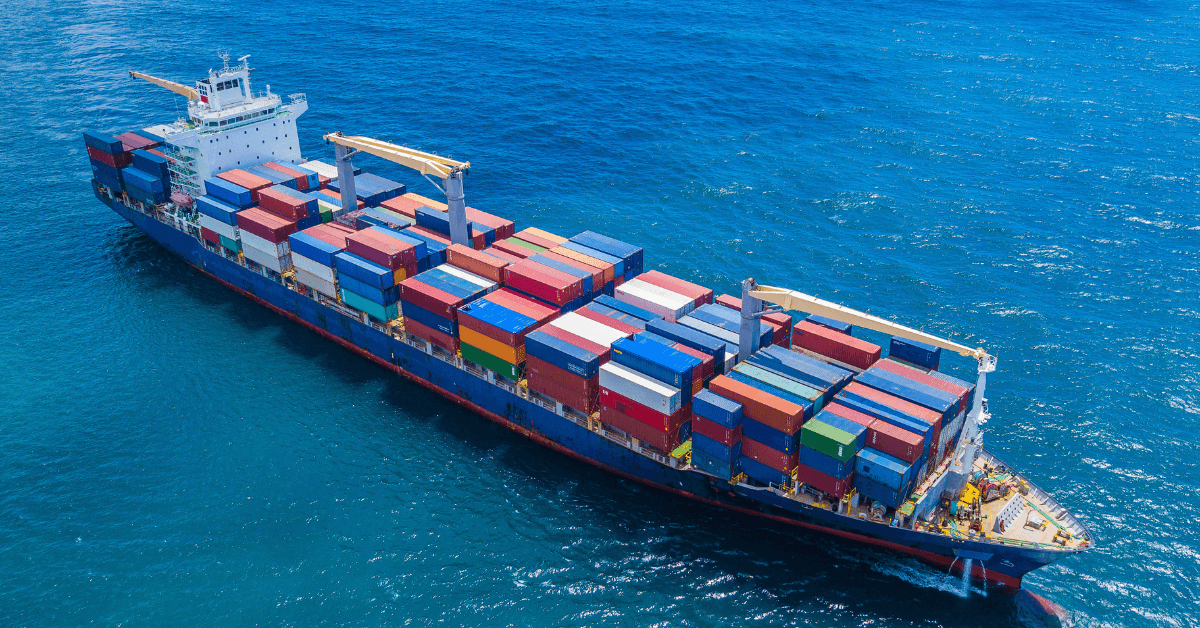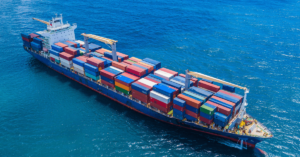
4,000-Gallon Fuel-Laden Vessel Capsizes Near Green Island, Crew Rescued Safely
April 12, 2025
Estonia Detains Sanctioned Oil Tanker Without Flag En Route To Russia
April 12, 2025

The International Maritime Organization (IMO) has approved draft rules that will set a legally binding framework to reduce greenhouse gas (GHG) emissions from ships.
The goal is to reach net-zero emissions by or around 2050.
The new regulations, approved during the 83rd session of the Marine Environment Protection Committee (MEPC 83) held from April 7–11, 2025, include two major tools: a mandatory marine fuel standard and a global pricing system for emissions.
These are expected to come into force in 2027, after formal adoption in October 2025.
These rules will apply to large ships over 5,000 gross tonnage, which are responsible for about 85% of international shipping’s total CO₂ emissions.
The draft rules form part of the IMO Net-Zero Framework, which is the first ever to combine a fuel standard and carbon pricing across an entire global industry.
On April 11, a history was made when 63 countries, including India, China, and Brazil, voted in favour of introducing a global carbon tax on the shipping industry.
The vote was the first of its kind and took place after intense discussions at the IMO headquarters in London.
Starting in 2028, ships that emit more than allowed will either need to switch to cleaner fuels or pay fees for their excess emissions. The carbon tax could raise up to $40 billion by 2030.
However, the funds will only be used within the shipping sector to cut emissions and will not go towards wider climate aid for developing nations.
Experts believe it will only help reduce shipping emissions by 10% by 2030, falling short of the IMO’s own target of at least 20%.
Oil-rich nations like Saudi Arabia, UAE, Russia, and Venezuela opposed the decision, while the US delegation did not attend the vote or take part in talks.
Some developing and vulnerable nations expressed disappointment. Many had asked for part of the revenue to support climate action in poorer countries, but the final agreement kept the funds limited to shipping-specific uses.
Tuvalu, speaking for Pacific Island nations, criticised the secretive negotiation process and said the final design failed to support a real shift to cleaner fuels.
Vanuatu’s Climate Change Minister also blamed fossil fuel-producing countries and the US for blocking progress and weakening the climate ambition of the proposal.
The IMO Net-Zero Framework will be added as a new Chapter 5 to Annex VI of MARPOL, the main international treaty for preventing ship pollution. MARPOL Annex VI already covers about 97% of the world’s merchant ships and includes energy efficiency rules.
Under the new draft rules:
- Ships must cut down on GHG Fuel Intensity (GFI) over time. This means lowering the emissions produced per unit of energy, using a “well-to-wake” method that counts emissions from fuel production to usage.
- A Global Fuel Standard will require ships to meet annual GFI reduction targets.
- A Global Economic Measure will allow ships exceeding GFI limits to buy “remedial units” to offset their emissions.
- Ships using zero or low-emission technology can earn financial rewards or “surplus units.”
- There will be two compliance levels: a Base Target and a Direct Compliance Target, the latter allowing ships to earn tradable surplus units.
The new IMO Net-Zero Fund will handle contributions collected from ships that exceed emission limits. The fund will:
- Reward ships with low emissions
- Support clean tech innovation, research, and infrastructure
- Provide training, tech transfers, and support to developing countries
- Help vulnerable states like Small Island Developing States and Least Developed Countries cope with climate impacts
Ships can comply with emissions rules by:
- Using surplus units from previous years
- Transferring surplus units from other ships
- Buying remedial units through payments into the IMO Fund
Here’s the timeline for the new measures:
- October 2025: Final adoption of the MARPOL Annex VI amendments during a special MEPC session
- Spring 2026 (MEPC 84): Approval of detailed implementation guidelines
- 2027: Rules officially enter into force (16 months after adoption)
- 2028: Global carbon tax takes effect, with emissions pricing starting at $380/tonne for the worst emitters and $100/tonne for moderate excess emission.
Laurence Tubiana, CEO of the European Climate Foundation, noted that although the carbon pricing plan is an important step because it makes polluters pay, it still falls short.
According to her, it misses a chance to include a proper levy and public funding for broader climate needs. She added that the world supports taxing pollution and the super-rich, and called this outcome “a missed opportunity.”
Reference: IMO
Source: Maritime Shipping News


